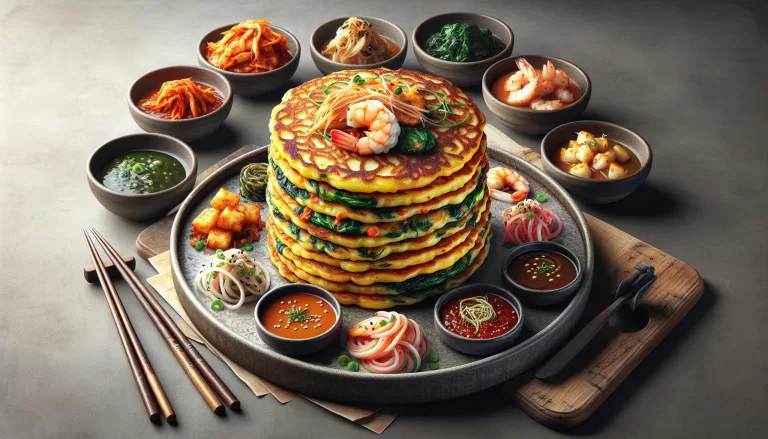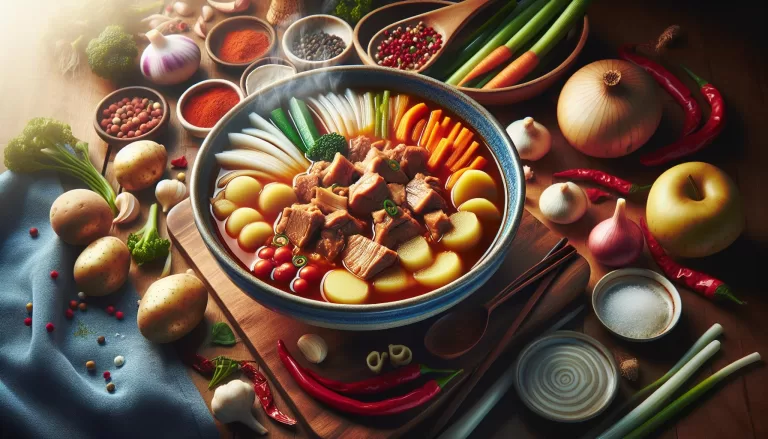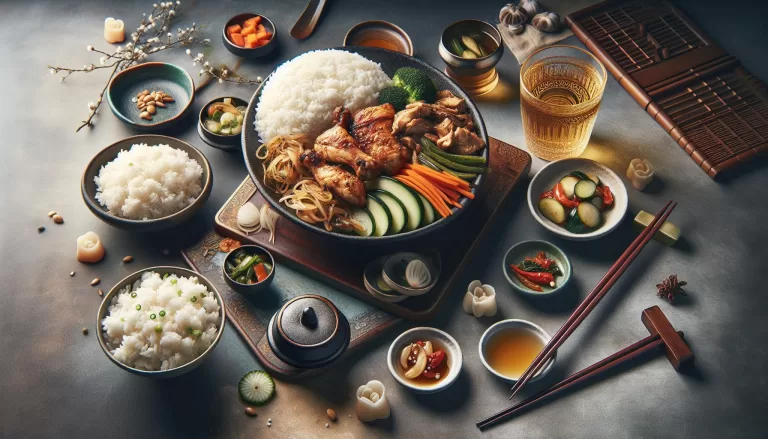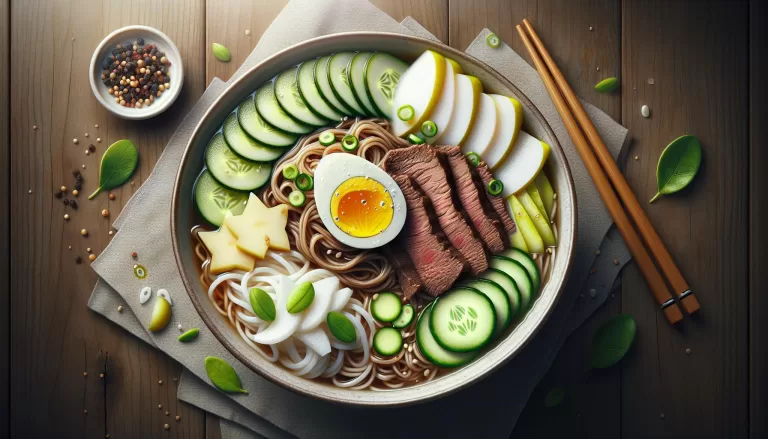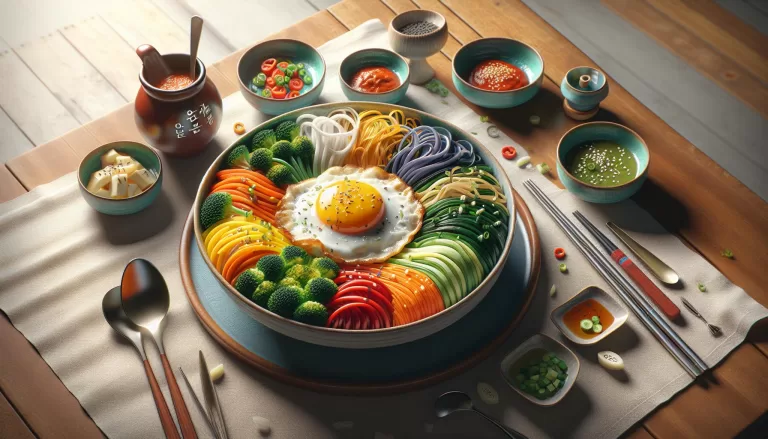Homemade Braised Short Ribs Galbi Jjim Recipe – A High Protein Low Carb Delight
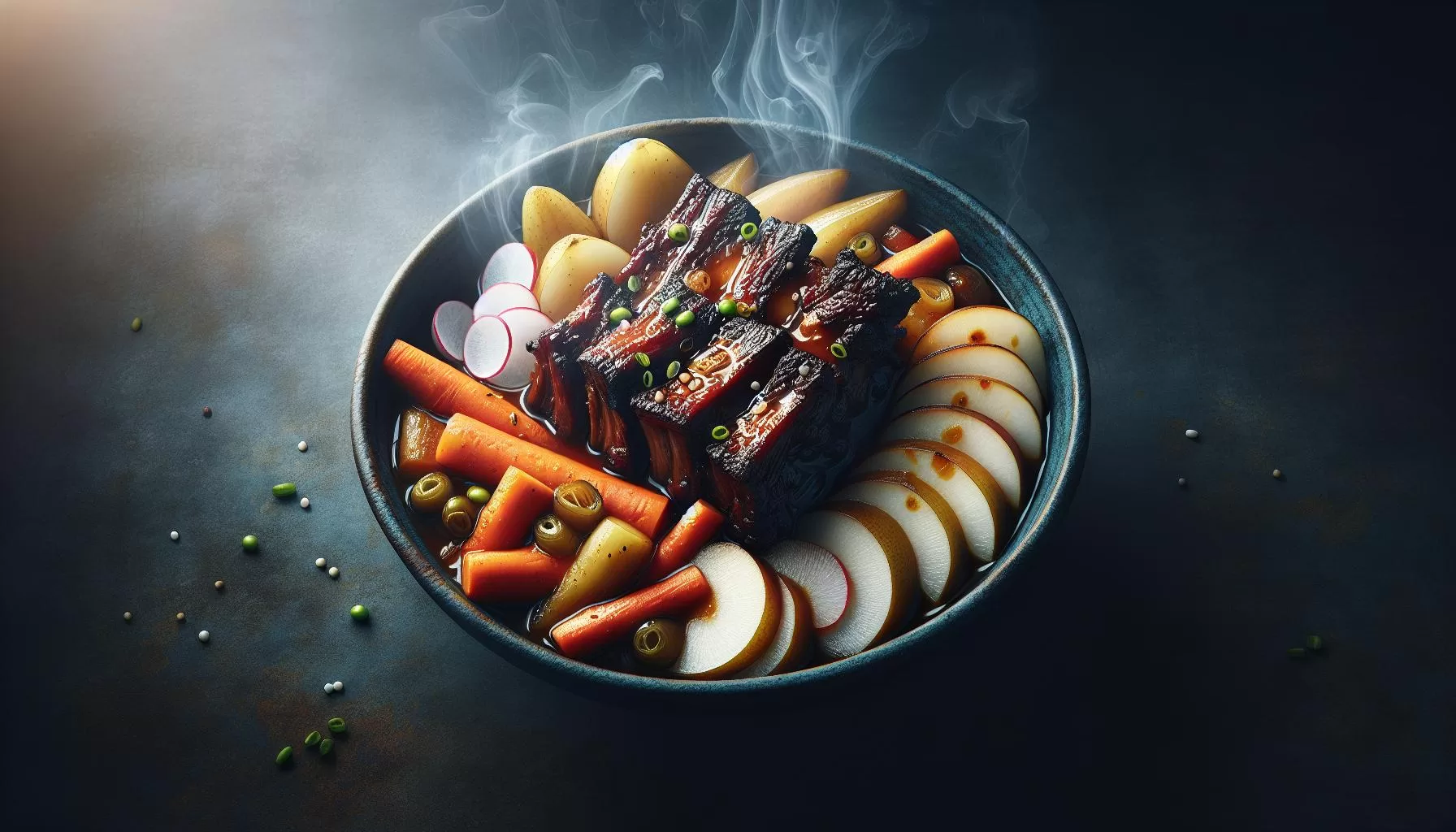
Choosing the Right Ingredients
Choosing the right ingredients for your homemade galbi jjim is half the battle to unlocking those desired savory flavors. You’ll want to get every component just right.
Meat
Your main ingredient is short ribs. For the perfect balance of meat and fat, look for ribs that have marbling. You’ll need around 3 to 4 pounds for this recipe. Marbling not only indicates juiciness but also dictates how tender your meat will be following the braising process.
Aromatics
Next up are the aromatics. Garlic, ginger, and onion form the backbone of flavor here. You’ll need 4 cloves of garlic, a small piece of ginger, and one medium-sized onion. Remember, it’s important to use fresh versions of these ingredients. They give a depth of flavor that powdered versions can’t match.
Seasonings
For the seasonings, you’ll need light soy sauce, sesame oil, and brown sugar. It’s good to invest in high-quality soy sauce and sesame oil. With these, just a bit goes a long way. About ½ cup of light soy sauce, 2 tablespoons of sesame oil, and ¼ cup of brown sugar should do the trick.
For an additional flavor boost, consider adding a dried red chili pepper to the mix. It’s a little extra touch some home cooks don’t typically use but it gives the final dish that extra kick, making it memorable.
Accompaniments
Don’t forget your accompaniments! Mushrooms and carrots add a welcome earthiness and sweetness to this savory dish. Around 1 cup of sliced mushrooms and 2 medium-sized carrots should suffice.
Providing you choose your ingredients well, your braised short ribs galbi jjim dish will surely be a hit with everyone at the table.
Nutritional values per serving:
| Calories | Carbs | Protein | Fat |
|---|---|---|---|
| 582 | 8g | 53g | 37g |
Preparing the Short Ribs

In the quest for flavor-packed galbi jjim, the preparation of your short ribs is a master key. Choose well-marbled short ribs; the fat content cooks down into the meat, providing juicy, tender morsels that’ll tantalize your taste buds.
First off, soaking short ribs is a step you shouldn’t skip. You’ll need to submerge your ribs in cold water and leave them for at least six hours. Don’t be tempted to rush this step. It’s this soaking process that helps remove the blood and impurities from the ribs, giving you a cleaner, richer flavor.
Dressing your ribs in a mixture of light soy sauce, brown sugar, and sesame oil is next. Combine 2 tablespoons of light soy sauce, 2 tablespoons of brown sugar and 1 tablespoon of sesame oil. Slather this mixture onto the ribs and let them marinate for as long as possible, from one to two hours at the very least, but overnight if you can manage it. Overnight marination works its magic, infusing every fiber of the ribs with that wonderful combo of savory, sweet, and nutty flavors.
Some readers may like a bit more heat in their dishes. If you’re in that camp, try adding a tablespoon of Gochujang (Korean red chili paste) to your marinade mix. This will kick the heat up a notch and add another layer of complexity to your galbi jjim.
Up next is the inclusion of your aromatics. Use fresh garlic, ginger, and onion. Peel and mince 4 cloves of garlic, a thumb-sized piece of ginger, and 1 large onion.
Speaking of flavor boosters, don’t forget the essence brought by dried red chili pepper, mushrooms, and carrots. You’ll just need 1 dried red chili pepper, 1 cup of sliced mushrooms, and 1 cup of chopped carrots for the cooking process.
Making the Braising Sauce

It’s time to dive into the heart of galbi jjim: the braising sauce. The sauce isn’t just an add-on; it’s where all the tangy, sweet, and spicy flavors merge to create a rich and savory foundation for the dish.
Start basics, go bold. Begin with a base of light soy sauce and brown sugar as your primary ingredients. You’ll need 1/2 cup of soy sauce and 2 tablespoons of brown sugar for this recipe. This combo lays down a classic, balanced platform – salty sweet, essential in Korean cuisine.
Here, you get creative. Veer from the traditional path with an ingredient uncommon to most galbi jjim recipes: clover honey. Add a tablespoon. It’s not just about the sweetness; it’s about the aromatic, floral undertone honey imparts. This will give your galbi jjim an unexpected depth of flavor.
Now introduce the heat. Gochujang, a Korean red chili paste, is a must. It brings dynamic heat that doesn’t just scorch, but instead adds a complex flavor layer. You’ll need 2 tablespoons of it.
Remember the importance of fresh aromatics. Include minced garlic, grated ginger, and finely chopped onion into the mix. For this recipe, you’ll want 2 cloves of garlic, a 1-inch piece of fresh ginger, and 1 medium onion. These add an elevated kick to the flavor profile of your dish.
Lastly, infuse the sauce with dried red chili peppers, mushrooms, and carrots. Add 1/2 cup dried red chilli peppers, 1/2 cup dried mushrooms, and 1 cup diced carrots. These ingredients not only build intensity in the sauce but also add an inviting warmth.
| Ingredient | Amount |
|---|---|
| Light Soy Sauce | 1/2 cup |
| Brown Sugar | 2 tbsp |
| Clover Honey | 1 tbsp |
| Gochujang | 2 tbsp |
| Garlic Cloves | 2 |
| Fresh Ginger | 1-inch piece |
| Medium Onion | 1 |
| Dried Red Peppers | 1/2 cup |
| Dried Mushrooms | 1/2 cup |
| Diced Carrots | 1 cup |
Braising the Short Ribs

Once your braising sauce imparts its unique blend of spicy, sweet, and tangy flavors, you’re all set to plunge forward to the heart of galbi jjim – the braising of the short ribs.
With your sauce ready, take your beef short ribs. Ensure they’re well-trimmed and bone-in, for maximum flavor. You’d need approximately 1.5 kgs. Immersing these beauties in our homemade braising sauce is your next step.
Fire up your burner and bring the sauce to a simmer. As it starts to bubble gently, introduce the short ribs into the pot, ensuring they are well-coated in the sauce. The aroma filling your kitchen at this point is all part of the galbi jjim charm.
Here’s an insider tip for you. For a unique twist on the classic, consider adding a tablespoon of white miso paste. Not traditional, but this umami-packed ingredient can add incredible depth, making your galbi jjim extraordinarily memorable.
Close the lid on the pot and let the ribs simmer away, soaking up the heady sauce flavors. After about two hours, toss in a handful of julienned carrots for an extra bite. Remember, you want the beef melt-in-your-mouth tender, so patience is key!
During this slow-cooking process, the short ribs release their hearty flavors, melding with the braising sauce to create an exquisite harmony of tastewise titillation.
As for the nutritious side of galbi jjim, it’s quite impressive!
| Nutrient | Amount per Serving |
|---|---|
| Calories | 400 |
| Carbs | 10g |
| Protein | 35g |
| Fat | 25g |
| Vitamin B12 | 70% of the Daily Value |
So, not only is a homemade braised short ribs galbi jjim succulently delicious, it’s loaded with muscle-building protein and essential nutrients too! It’s time to indulge in the culinary delight of this classic dish. Experience the tender, juicy, braised short ribs gliding off the bone, all drenched in a sauce that’s impossibly rich, warming, and deeply satisfying.
Adding the Final Touches

After spending hours patiently waiting for your short ribs to transform into fragile, succulent pieces under the power of a slow simmer, you’re ready to add the final touches to your galbi jjim. With the bones lending a savory richness and the bay leaves, ginger, garlic, yellow onion, and miso paste arraying a profound depth of flavor, you might reckon it’s perfect as it is. But there’s more to be done for a memorable taste experience.
As a secret ingredient, consider adding Asian pears to your recipe. Asian pears have critical enzymes that tenderize meat while simultaneously adding a subtle sweetness. They play an indispensable part in traditional Korean BBQ recipes and definitely make a difference when included in your galbi jjim.
Peel one medium-sized Asian pear and purée it in a blender with a little water until smooth. Mix this with your homemade braising sauce and carefully with the short ribs. The hint of fruitiness and the added tenderness make this addition worth the effort. If Asian pears are inaccessible, Apple or Anjou pears make commendable substitutes.
Furthermore, you can throw in some vibrant root vegetables. Chunks of radishes, carrots or parsnips, simmered in the flavorful broth until fork-tender, contribute a certain complexity to the dish and beautifully contrast the hearty ribs.
Also, don’t underestimate the nutritional value of your homemade galbi jjim.
| Nutritional Components | Quantity per serving |
|---|---|
| Calories | 510 kcal |
| Carbohydrates | 12g |
| Protein | 49g |
| Fat | 30g |
This dish is a high-protein, low-carb option, providing a balance of essential nutrients and fats. Plus, the addition of root vegetables adds vitamins to make it a more rounded meal. The combination of taste, nourishment, and the joy of crafting this dish creates an unparalleled culinary experience. Delighting in the process is as fulfilling as savoring the finished product. The adventure of making homemade galbi jjim doesn’t end here, with even more layers of flavor to explore in the rest of this recipe.
Conclusion
So there you have it. Your journey through creating a delicious, homemade braised short ribs galbi jjim has come to an end. You’ve discovered the power of Asian pears in tenderizing and sweetening your dish, and the depth that root vegetables can add. You’ve also learned about the fantastic nutritional benefits this high-protein, low-carb dish offers. But remember, the beauty of cooking lies in experimentation. Don’t be afraid to explore new flavors and add your unique twist to this recipe. After all, it’s your kitchen adventure. This isn’t just a dish; it’s a delightful culinary experience that’s as nutritious as it is flavorful. So go ahead, roll up your sleeves and whip up a storm in the kitchen with your homemade galbi jjim. You’re a culinary artist, and your canvas awaits!
